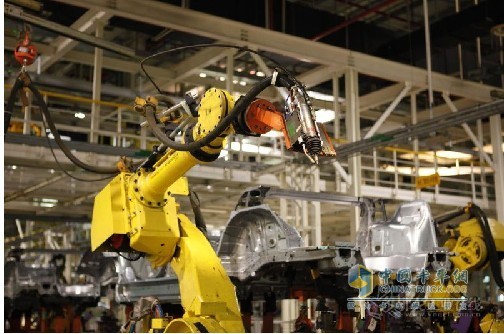Dong Yang: Parts System Is the Key to Developing Chinese Brands
The so-called “zero-to-zero†relationship refers to the relationship between the vehicle and the parts. When discussing Chinese brand cars, the zero-to-zero relationship often also implies the construction of a component system that can support the development of the Chinese brand vehicle. The zero-relationship between Chinese brands is a problem that I have been paying special attention to for a long time. I am currently discussing with the industry’s minds: First of all, a strong component system is a prerequisite for a strong automobile country. From the perspective of industrial relations, the competitiveness of the vehicle lies in its good quality, its ability to meet increasing customer demands and regulatory requirements, and its low enough cost control. These are mainly dependent on the parts system. Judging from historical experience, the automobile powers of the United States, Germany, Japan, and South Korea all have a strong auto parts industry system. Although the capital relationship and development experience between the vehicle and component industries in these countries are different. For example, Japanese and Korean vehicles and parts companies have many capital relationships and affiliations in their development experience. For example, Delphi and Visteon in the United States are separated and developed from parts and components groups of General Motors and Ford Motor. However, the same is true between the vehicle and the backbone enterprises of the parts and components with good strategic alliances, mutual promotion and simultaneous development. Second, the development of Chinese brands is the core issue of building a strong automobile country. China is already the world’s largest automobile production and sales country. The industry’s development goal is to build a powerful automobile country, and the important task of building a strong automobile country is the development and formidability of Chinese brand cars. There is controversy within this proposition. The Chinese auto industry has a history of more than 60 years. The real development and growth have been more than 30 years since the reform and opening up, and the driving force for development is internal reform and opening to the outside world. While making full use of the capital, technology, and management of the foreign automotive industry, we have also created a predominance of foreign brands in the Chinese automotive industry. There are two very different opinions on how to develop Chinese brands under such circumstances: One kind of opinion is that there is no need to deliberately develop Chinese brands. The reason is that according to WTO principles, regardless of whether or not capital comes from abroad, as long as a company is established in China, it is a Chinese company. The production of these enterprises is made in China. The R&D of these companies is created in China. These principles were originally good, but it overlooked another reason: Similarly in Chinese production, the contribution of Chinese brands and foreign brands to the economy, the driving of science and technology, and the role of economic and national defense security are very different. Another opinion, on the other hand, requires restricting foreign brands and vigorously developing Chinese brands. The reason is that we are opening up and introducing foreign capital for the sake of learning technology and management. Now that we have learned more about it, we must continue to open it without learning. We should close down and develop ourselves. This idea is not unreasonable, but it is out of place: because opening up is not simply an expedient measure for learning advanced foreign technologies and the use of foreign capital, but it is a fundamental national policy for adapting to the trend of global economic development. Development process. Therefore, what we need is development in opening up. We should develop Chinese brand cars while actively opening up and encouraging the development of foreign brands in China. This is the core issue for us to build a powerful automobile country. In addition, building a Chinese auto parts system with considerable strength is the key to the development of Chinese brand cars. The reason is very simple: Chinese brand vehicles must develop in the same competition with foreign brands and must be good and cheap. Reliance on existing weaker, lower-level parts systems will not work because vehicle performance will not be competitive with foreign brands; and relying entirely on foreign brand parts will not work because it will make the cost of the entire vehicle High, no form of price competitiveness. For those companies interested in developing Chinese brands of auto vehicles and parts and components companies, I suggest that the entire vehicle company develop a strategic partnership plan for the establishment of Chinese brand parts and components, and consciously assist outstanding Chinese branded parts and components enterprises; and spare parts companies should develop their own standards for outstanding international peers. The development strategy. It is necessary to pay attention to entering the international OEM support, because winning the world can really win China; the Chinese brands of vehicle and component companies will pay special attention to joint development in the development of new models and application of new technologies, which is the basis for a good zero-relation relationship. (The author is executive vice president and secretary-general of China Association of Automobile Manufacturers) Magnetic Tool Holder,Magnetic Tool Holder With 4 Hooks,Tool Holder Magnetic 8 Inch,Magnetic Knife Holder Ningbo Haishu Longer Houseware Co., Ltd. , https://www.longerbest.com
Buy truck parts, on the Taobao stalls, multiple discounts waiting for you to take!
Http://NewDrain.html